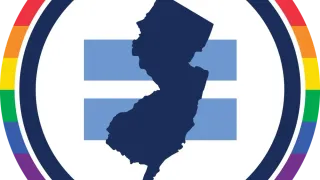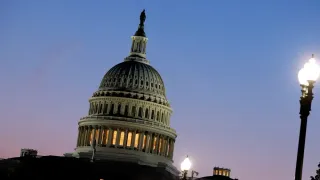November 3, 2014
E. Bay Sees Surge in Out Candidates
Kilian Melloy READ TIME: 4 MIN.
For the first time in recent memory there are more out candidates running for political office in Alameda County in next week's election than there are in San Francisco, which is both a city and a county.
Based on interviews with leaders of LGBT political clubs, and more candidates self-disclosing their sexual orientation, there are 11 out candidates running for local offices in Alameda County in the November 4 election compared to the 10 out candidates seeking public office in San Francisco.
The East Bay county, which includes the cities of Oakland and Berkeley, may be ahead of San Francisco by only one candidate. Nonetheless, it is reflective of the Bay Area's changing LGBT demographics and a widening of the LGBT community's electoral strength.
"I think we are seeing what is going to become the new normal. We are going to see more out LGBT candidates running in the East Bay," said gay Oakland resident Sean Sullivan , who lost his 2008 bid for a city council seat and this year is helping his partner, Richard Fuentes , campaign for a seat on the board governing the Peralta Community College District.
Fuentes, who lost his bid for an Oakland school board seat two years ago, said there "definitely are more LGBT candidates running" this time.
"One thing I am really excited to see is we all have open communications and check in how we are doing," he said. "It is very supportive for the community we are building."
Since Harvey Milk's historic supervisor victory in 1977, becoming San Francisco's first out elected official, the city has long been seen as the political power center for the Bay Area's LGBT community. The city is home to two influential LGBT Democratic clubs and has elected a host of LGBT politicians to both local and state offices over the last 37 years.
While other Bay Area cities and counties - San Jose in the South Bay, Hayward in the East Bay, and Vallejo in the North Bay - have had out elected officials, there hasn't been the same steady succession of LGBT leaders cycling into public office as has happened with San Francisco's LGBT community.
But that pattern has been showing strains with each election cycle. Since the 1999 mayoral race, no out candidate has been able to claim victory to Room 200 at San Francisco City Hall.
Lesbians have not held a political office in the city since 2008, and next Tuesday, a straight candidate could win the city's Assembly seat long held by out leaders.
Meanwhile, due to soaring rents and housing prices in the city, a steady flow of LGBT people has decamped for the East Bay. That has been mirrored by the growth of a strong bench of LGBT leaders who are increasingly seeking elected office in Alameda County, particularly in Berkeley and Oakland.
"I think it is all about representation. We have been here, we have always been here," said Peralta Community College District Trustee Abel Guillen, who came out as Two Spirit two years ago when he ran for a state Assembly seat and is now running for an Oakland City Council seat. "I think it is great we are coming into our own, if you will, and taking these leadership roles. We lead for the entire community and not just one community."
Oakland mayoral candidate Rebecca Kaplan. Photo: Jane Philomen Cleland
The candidates on the ballot next week run the gamut from lesbian Oakland At-Large City Councilwoman Rebecca Kaplan, who polls show has a good shot at being elected mayor, and Berkeley City Council candidates Lori Droste, a lesbian, and George Beier, a gay man, to gay Emeryville City Council contender John Bauters and Marguerite Young , a lesbian single mom running for a seat on the East Bay Municipal Utility District board.
Several incumbents are seeking re-election, such as bisexual EBMUD Board Member Andy Katz and gay longtime Berkeley City Councilman Kriss Worthington, while queer candidates are in the running for seats on the Berkeley Rent Board, James Chang, and the AC Transit board, Dollene Jones.
"They must have put something in the water at the White Horse," joked Droste, referring to the Oakland gay bar, considered the country's oldest, near the Berkeley border. "I do know a lot of LGBT folks are moving over to the East Bay because it is a bit more affordable than San Francisco. Certainly, people are attracted to Berkeley for the schools; there is a really large presence of LGBT families here."
The influx of new LGBT residents, many of whom are homeowners, are looking to see people like them in positions of power at city halls across the East Bay, said Sullivan.
"Take West Oakland for example: a lot of the homes that have been refurbished are being bought by lesbian and gay owners coming from San Francisco. The same can be said of Emeryville," noted Sullivan. "The political reality is that we now have a constituency of people inclined to vote because they are now homeowners and want to protect their investment. And they are happy to do so by supporting an out LGBT candidate."
"I feel them being a stronger group has definitely changed the landscape for LGBT candidates to feel more supported and to feel like they have a group of folks who can walk streets for them, do phone banking and write a check for the campaign," said Fuentes.
Young, who was born and raised in the East Bay and briefly lived in San Francisco, said the two areas differ in terms of their political scenes. While San Francisco's LGBT community remains concentrated in the city's eastern neighborhoods, the East Bay LGBT community is more diffuse, she noted.
"I think the East Bay is kind of figuring out what works for the East Bay. I don't think that is the same as in San Francisco," she said. "Oakland and other Bay Area communities, in general, are more diverse."
"I still think, in terms of boots on the ground, more money, and more clout, there is still more that can be done," she said.
Having a large number of LGBT candidates on the ballot at once, said Young, "definitely is helpful. What it shows is that in the East Bay being LGBT and being a candidate for election is going mainstream, and that is great."






